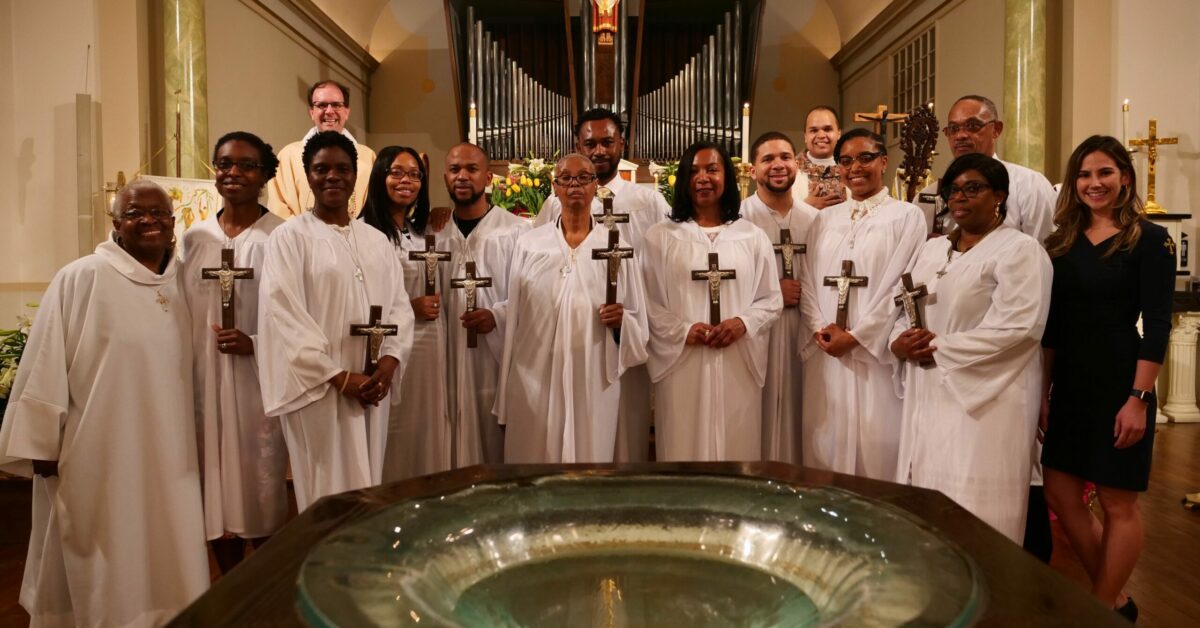The Formation—NOT the Information—Highway
The faith formation process (catechumenate) is a journey, a lifelong journey toward the kingdom of righteousness, peace, and joy in the Holy Spirit (Romans 14:17). It is a journey on the formation highway, not the information highway. We best leave that to Silicon Valley. Not that there is no place in faith formation for information. As we observed last week regarding the benefits of a church tour, “These goals for the seekers illustrate the dual purpose of information and formation within the catechumenal process . . . By walking through the worship space, touching the furnishings, and pointing out specifics, the tour leader’s imparting of information will be more effective than a classroom lecture.” But information serves formation. The goal and telos of the faith formation process is the transformation of those seeking relationship with God the Creator and His Son Jesus Christ.
The affirmation that the catechumenate is about personal transformation rather than solely the imparting of information is fundamental for slow walking out of an adult instruction class toward a faith formation process. Even our language of adult information betrays our understanding of what we are doing. Three characteristics are crucial toward making this shift from information to formation: 1) Faith formation facilitates conversion; 2) Faith formation centers on relationships; 3) Faith formation incorporates into community.
Faith formation facilitates conversion
Faith formation doesn’t just inform about the Christian faith. It moves a person into a new way of life. As Welcome to Christ: An Introduction to the Catechumenate indicates, “Let us take seriously the matter of repentance and conversion. In the journey of the catechumenate, those preparing for Holy Baptism are in the process of becoming Christians….At its heart, the catechumenal process is a repenting of all that keeps us from being so joined [to the death and resurrection of Jesus Christ], and a journey of conversion to a new life…Catechumens are turning from their former life and turning toward new life in Christ….[This] conversion involves the whole person—intellect, emotions, spirit, actions and more” (22-23). It is not just information about, but formation in this new life.
Faith formation centers on relationships
Information dumping doesn’t further the building of relationships. Yet, in a faith formation process in which building relationships in the Body of Christ is a primary goal, information assumes a servant role. As Paul Hoffman says of the catechumenate, “Foundationally, it means a way of being with one another and with our God that is dialogical, relational, and drawn from the deep wells of the participants’ real-life experiences and interactions with the Holy Scriptures” (Faith Forming Faith, 33). We have to break away from the notion that our educational processes with adults (and youth too, for that matter) focus on content. They shouldn’t, unless we want them to whither on the vine. They should focus on transformation—of everyone involved.
Faith formation incorporates into community.
Transforming everyone brings us to community. Faith formation seeks to graft into the Christian community those who encounter Christ in the community’s life and are transformed. In this journey the transformation happens both ways. As Welcome to Christ notes, “The realization grows that as the community helps to shape the identity of the catechumens, so the catechumens also shape the identity of the community. Its mission and ministry are shaped by this calling….For the community, the presence of catechumens is transformative, life-giving, and redemptive in the sense that the catechumens lead the baptized back to the place of their origin. In the water and word of Holy Baptism—as well as in the daily practice of worship, prayer, scripture, and ministry—we are the body of Christ, bearing gifts of healing and compassion for our world” (23).
The journey to life in Christ is abundantly rich. Conceiving of it as adult information robs it of this richness. It is not an information highway but a transformative journey that gives shape to the rest of one’s life and to the coming kingdom of God into which we are invited.
